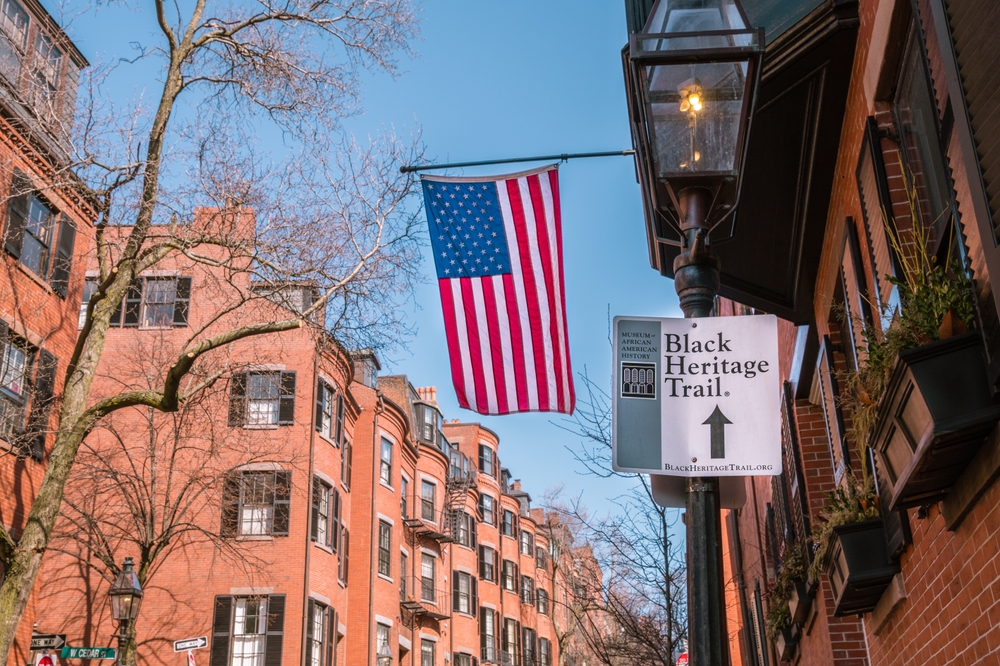In a landmark initiative bridging past and present, New Jersey’s ambitious Black Heritage Trail has emerged as a powerful testament to African American resilience, marking 32 historic sites that weave together centuries of untold stories. The trail, which made its debut in 2024, stands as one of the state’s most comprehensive efforts to illuminate the profound impact of Black history on New Jersey’s cultural landscape.
A vision takes root
The trail’s journey began in the legislative chambers of Trenton, where Governor Phil Murphy’s signing of Bill A2677 in 2022 set the stage for a revolutionary approach to historical preservation. The New Jersey Historical Commission stepped forward to shepherd this vision, carefully evaluating more than 60 site nominations submitted during the initial phase in March 2024.
This meticulous selection process yielded 32 locations that met the rigorous criteria for historical significance. Each site underwent thorough examination by a committee that recognized the imperative of preserving these crucial chapters of New Jersey’s past. Their unanimous approval of the recommended locations underscores a shared commitment to elevating previously overlooked narratives.
Landmarks of perseverance
Athletic heritage preserved
Among the trail’s crown jewels stands Hinchliffe Stadium, a rare surviving testament to the Negro League baseball era. This architectural treasure transcends its role as a sports venue, embodying both the excellence of Black athletes and the systemic barriers they faced during segregation.
Freedom’s foundation
The Historic Timbuctoo settlement emerges as another pivotal stop along the trail. Established in the late 1820s, this haven for freed and formerly enslaved individuals represents an early chapter in New Jersey’s journey toward equality. The site’s enduring presence serves as a powerful reminder of the state’s complex relationship with freedom and justice.
Community cornerstones
The trail encompasses various sites that played vital roles in Black community life. Atlantic City’s Chicken Bone Beach stands as a poignant reminder of segregation-era leisure spaces, while Camden’s Kaighn Avenue Baptist Church represents the spiritual backbone of its community. The East Orange Freedom Schools exemplify the persistent pursuit of educational equality.
Expanding horizons
The trail’s launch signals the beginning of a dynamic journey rather than a final destination. The Historical Commission’s commitment to regular nomination rounds ensures the continued growth and evolution of this historical network. This approach acknowledges that history is not static but continues to reveal itself through ongoing research and community engagement.
The initiative has garnered strong support from state leadership, who recognize its potential to transform public understanding of New Jersey’s historical narrative. The trail serves as both a physical route through history and a metaphorical bridge connecting diverse communities through shared understanding.
Legacy in motion
As the Black Heritage Trail takes root in New Jersey’s cultural landscape, its impact extends beyond historical preservation. The Black Heritage Trail creates opportunities for educational enrichment, community dialogue, and cultural tourism. Each site along the Black Heritage Trail offers unique insights into the challenges, triumphs, and daily lives of African Americans throughout New Jersey’s history.
The Black Heritage Trail’s establishment marks a significant shift in how states approach historical preservation and public education. By highlighting these sites, New Jersey acknowledges the fundamental role of African American history in shaping the state’s identity and future. The Black Heritage Trail serves as a model for other states seeking to honor their diverse historical narratives.
As new sites join the Black Heritage Trail and existing locations develop enhanced educational programs, the Black Heritage Trail promises to evolve into an increasingly valuable resource for students, researchers, and citizens alike. This living monument to African American history ensures that future generations will have access to these crucial stories of determination, community, and progress.
The Black Heritage Trail’s creation represents more than a collection of historical markers; it embodies a commitment to preserving and celebrating the full spectrum of American experience. Through this initiative, New Jersey takes a significant step toward ensuring that all voices from its past resonate clearly in its present and future.















